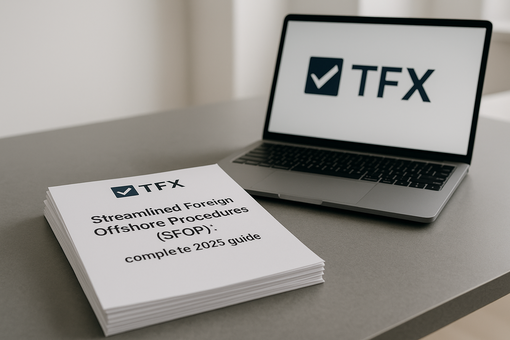Do expats have to pay state taxes? Everything Americans abroad need to know

Many US expats move to another country and think state taxes will never follow them again. But some people still get letters or bills even after many years of living abroad. This guide explains the basics in a very simple way, so you know what states look for and how small choices can matter later.
Key takeaways
- Federal tax and state tax are not the same. Federal tax looks at all income you make anywhere in the world, and each state makes its own rules about who is a resident.
- Some states give a small credit for taxes you paid overseas, some give no help, and nine states do not tax personal income at all. Missing the state rules can make a person pay tax twice.
- The Internal Revenue Service only controls federal taxes. It cannot decide your state filing rules because each state handles that on its own.
- Missing part-year filing, thinking Form 2555 clears every state duty, or throwing away travel papers and housing papers can all cause problems later on.
In this guide brought to you by Taxes for Expats, you will see easy answers written to help explain do expats pay state taxes while living overseas. Learn more about our services or contact us to get started.
Also read. Taxes for Expats - State residency issues
Who must pay state taxes while living abroad
Many Americans still pay state taxes, even while they live abroad, because their home state continues to treat them as residents, and there are several ways you could stay connected – and taxed.
If you are still considered a resident
Ties that anchor you, such as an active driver's license, a family home, voter registration, or school-age children, can keep you listed as a resident even after you live abroad. Since leaving the country does not break residency by itself, and because many states treat you as a resident if you keep a permanent home there and spend about 183 days in the state during the year, you may still need to pay state tax on worldwide income until your ties are fully cut.
If you earn income from a state
Rental income, pass-through profits, pensions, and US-based wages can all trigger a filing requirement, even when you no longer live in that state.
- Rental property income: Net rent and capital gains from property located in a state are always treated as income sourced to that state and taxed there.
- Pass-through business profits (K–1 reporting): Partnerships, LLCs, and S corporations usually send a portion of their profit back to the states where they operate, and these amounts flow through to your own nonresident returns.
- Pensions and state retirement plans: Some states tax benefits from their own public retirement systems, while certain private pensions may be exempt. Each plan follows its own rules.
- Wages and consulting fees tied to work performed in the state: Income from work physically performed in a state is normally taxed there, and the convenience of employer rules in states such as New York can apply even when the work is done overseas.
- Withholding on nonresidents: Several states require partnerships or companies to withhold tax on payments to nonresident owners or contractors, so filing a nonresident return is often the only way to recover any overpaid amounts.
If you moved abroad mid-year (part-year residency)
Most states divide the year when you move, treating income before departure as resident income and income after departure as nonresident or state-sourced only. This usually means a part-year resident return for the year of the move and, if you keep ties or income in that state, nonresident returns later on. Tracking dates, travel time, and pay periods carefully is important because even a short visit or a small timing change can affect how much income the state claims and how your foreign credits interact with its rules.

How to determine your state tax residency as an expat
In the case of Gaied v New York State Tax Appeals Tribunal, the court said you are not a statutory resident just because you own a place in a state. That idea now guides how states judge people who are living abroad and still keep ties in the United States.
- Domicile rules – Domicile is the state that treats itself as your real home, even if you now live abroad most of the year. California and Virginia both say you remain a resident when you keep your permanent home there, and your stay in another place looks temporary.
- How states check if you changed domicile – A state wants clear signs that you truly left and built a new life somewhere else before ending residency. In Virginia, you must leave your home for good and create a new home outside before the state stops treating you as a domiciliary resident.
- Physical presence rules in easy terms – These rules count how many days your body spends in a state in a year. New York uses more than 183 days, and New Mexico uses 185 days, which can trigger resident treatment even when someone tries to avoid state tax.
- Intent and ties that really matter – Intent is shown through facts such as where your family lives, where your belongings stay, and which address your banks use, and states like California and New York check these details closely to decide whether you truly ended your old residency.
- Forms that show what the state thinks – States compare what you say on forms with how you live in real life. New York and California look for mixed signals, such as using a state address or keeping a home you can return to, which can make a state decide that you still need to file state taxes while living abroad.
- Dual residency when two states claim you – Dual residency happens when both states say you are a resident at the same time. This is one reason expats sometimes discover they still owe filings after they have been living abroad for years.
The most and least expat-friendly states
Many expats jump into a new life overseas and assume their old state fades away with the move. In reality, some states truly let you go while others keep pulling you back through rules that are easy to trip over.
States with no personal income tax
Some states give expats an especially smooth exit because they no longer run any broad tax on wages.
- Tennessee once taxed interest and dividends through the Hall income tax, but the Tennessee Department of Revenue confirms this tax is fully repealed for tax periods beginning on or after January 1, 2021, which means there is no remaining personal income tax at the state level.
- New Hampshire used to tax only interest and dividends, and the state’s Department of Revenue shows that this tax was repealed for taxable periods beginning after December 31, 2024, so that narrow category disappears from 2025 onward.
- Washington does not tax wage income but does run a capital gains excise tax. Long-term gains above a standard deduction are taxed at 7 percent, and from tax year 2025, gains over $1 million are taxed at 9.9% while gains up to that level stay at 7%.
Someone who moves abroad from one of these states and cuts all ties rarely has to pay state income tax on their salary earned while living abroad, unless they later form ties with a new taxing state.
NOTE! The six other states in this group, Alaska, Florida, Nevada, South Dakota, Texas, and Wyoming, also do not levy a broad tax on individual wage income.
Also read. 9 US states with no income tax
States that usually let you leave cleanly
Some states rely on simple rules. Once you move your true home somewhere else, spend little time in the state, and stop using a home there, they generally treat you as a nonresident. They still tax income that clearly comes from the state, such as rent from a local property, profit from a business operating in the state, or wages from short periods of work done inside the state.
This pattern appears in states such as Arizona, Illinois, Oregon, and Colorado, and it matches the way many states define nonresident returns in their instructions. These rules keep the focus on state tax that is tied to in-state activity, not on your worldwide income after you live abroad full-time.
The toughest states for expats
Some states use residency tests that keep many former residents locked in far longer than expected. These rules come straight from state law or state forms and explain why the system feels strict.
| State | Key laws |
|---|---|
| California | Check how residency works, including the 546-day employment safe harbor that treats qualifying long-term overseas workers as nonresidents. |
| New York | Follow the permanent place of abode rule and the more than 183 days rule used in the statutory resident test. |
| Virginia | Virginia separates domiciliary residents from actual residents based on legal home and days in the state. |
| South Carolina | Anyone who becomes domiciled in a foreign country and severs ties with South Carolina is not subject to its income tax laws. |
| New Mexico | A resident is someone domiciled in New Mexico or present in the state for 185 days or more, and the PIT 1 instructions explain part-year and nonresident filing. |
Also read. Market-based sourcing
These differences matter because someone can still pay state income tax on salary or investment gains even after leaving the country, simply because the state sees enough ties to treat that person as a resident under its own rules.
Do expats need to file state taxes for past years?
Yes, living abroad does not automatically exempt you from state tax obligations, and you may have to file if your former state still considers you a resident or if you earned income sourced there. Even if you believe you no longer owe, the duty to file remains until you formally sever those ties and meet your state’s rules. Checking whether you have to pay state taxes, especially for past years, is important to avoid surprise assessments.

How to change your state residency before moving abroad
Many people planning a move overseas want fewer state tax problems, and the easiest wins come from simple steps done at the right moment.
- Pick one clear move date because states like California and New York say you stay a resident until you leave and set up a real home somewhere else.
- Update your driver's license and voter record because Virginia and other states list these items as signs of where your true home is.
- Keep proof that you ended your old home because South Carolina rules say you stop being a resident when you cut ties and make a new home.
How to properly sever ties with your state
Making a clean break is simple when each step shows you have a new home. These small actions help stop state tax claims later and make your move easy to prove.
Step 1: Cancel your driver's license and car registration and get your new ID fast, because states see this as a clear sign that you left.
Step 2: Change your voter record to an overseas ballot or your new place so the old state cannot say you still vote there.
Step 3: Sell your old home or rent it out with a real lease and remove your things so it no longer looks like you still live there.
Step 4: Keep visits short and track your days because many states treat long stays as proof you still belong there.
Step 5: Move your family and key records so it is clear your daily life now happens somewhere else.
Step 6: Close or move old bank accounts and send your mail to your new address so your money trail matches your new home.
How federal expat tax benefits impact state returns
Federal tax breaks for expats don’t always carry over to the state level. Understanding how key benefits are treated can prevent costly surprises at tax time.
- Foreign Earned Income Exclusion (FEIE) – Most sticky states disallow FEIE, so a salary excluded federally may remain fully taxable at the state tax level.
- Foreign Tax Credit (FTC) – Only a handful of states grant credits for taxes paid abroad, and even then, caps apply. Understanding this prevents you from overcrediting at the federal level only to undercredit on state forms.
Because rules diverge, an expat can owe sizable state tax even after optimizing federal benefits, making coordinated planning essential.
State tax rules for special expat situations
How states treat expats for tax purposes often comes down to small facts that matter more than distance, and they become clearer once you look at the special situations that can follow someone living abroad
- Many service members keep a legal home state for tax purposes under the Servicemembers Civil Relief Act, and states like California or Virginia use domicile rules to decide if income stays taxable. A PCS move abroad does not break ties by itself, and forms such as Form 540NR or Form 760PY may still appear when a state views the move as temporary.
- Some states treat the school year outside the country as a short absence, which links the student back to the home household for state tax purposes. Virginia and South Carolina take this view, and credits can appear when scholarships or part-time pay create income that ends up tied to the state.
- States often tax work where it happens, and Massachusetts shows how a few days of projects in one state can create income that belongs on a nonresident return. A nomad who lists an old office or LLC address may also trigger that state’s sourcing test even while earning everything abroad.
- When payroll systems tie an employee to a home office, wages may be sourced to that state unless the employer updates the records. New York applies these ideas, which can place wages from a W-2 or 1099 on a Form 763, even if all work is done overseas.
- A move from one state to another and then out of the country often leads to a split year. California and Virginia use part-year forms, while New York divides income between resident and nonresident periods. These rules help states sort income linked to each location.
- Some people have jobs or projects spread across many states. The safest approach is to match where the work was done with the state that claims it, since each state tax system makes its own call based on the service location rather than the federal result.
Is the federal expat filing deadline the same as the state deadline?
The IRS gives Americans abroad an automatic two-month extension to 15 June to file and pay federal tax. Many – but not all – states keep the standard 15 April deadline unless you file a separate state extension.
- California gives Americans abroad until June 17, 2025, to file and pay without penalty. Use Form FTB 3519 only to submit payment; filing is automatically extended to December 16, 2025. Interest runs from April 15 if unpaid by June.
- New York follows the federal two-month rule, giving expats until June 16, 2025, to file. You must submit Form IT-370 by that date to request an additional extension through October.
- Virginia keeps the May 1 payment deadline (if tax is owed) and grants an automatic six-month filing extension to November 1, but no extra time to pay.
When and how to get professional help
Complex moves, aggressive notices, or significant in-state income are clear cues to bring in a specialist like TFX who interprets residency statutes, aligns federal and state strategies, and shields you from audit missteps. Ultimately, avoiding penalties is cheaper than fixing them.
At Taxes for Expats, we are ready to guide you through every twist so you can live abroad with confidence.




